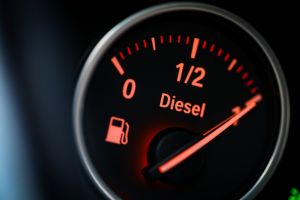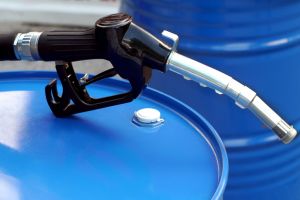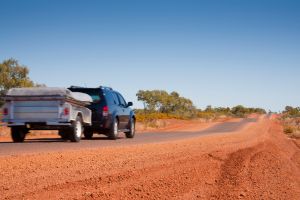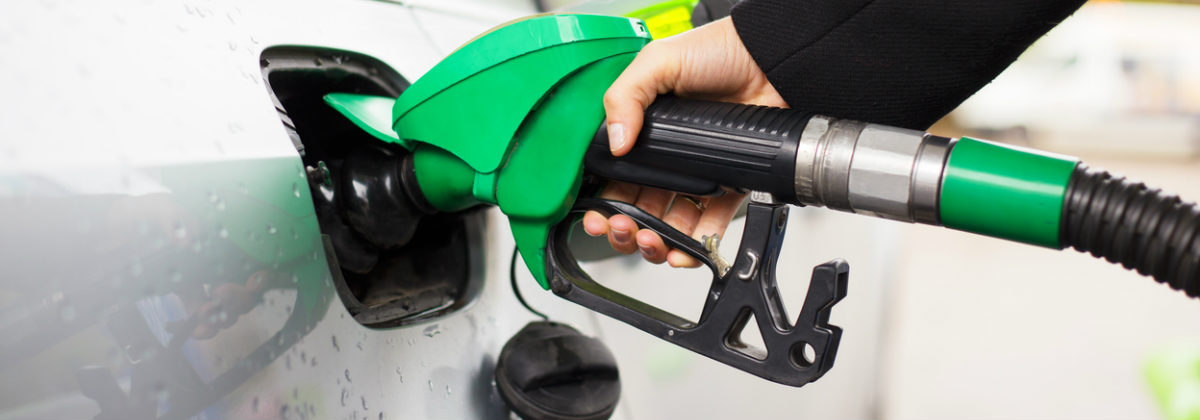Diesel engines in passenger cars are increasingly popular. In fact, not even Volkswagen Group’s ‘Dieselgate’ scandal could fully put a stop to the diesel juggernaut. While diesel engines have been popular in commercial vehicles for many years, if you’re on the ‘mature’ side of 30, you probably grew up in a world where 99% of family cars ran on petrol. That’s just not the case anymore – diesel proliferates increasingly across the car new vehicle market, standing shoulder-to-shoulder with petrol counterparts.
What cars come in diesel?
Below is a list of the top 10 best-selling cars at the time of publication, with a fairly even blend of both commercial-oriented and passenger cars. We’ve done the research and found out whether or not the makes and models feature a diesel variant in their range. The notable exceptions tend to be the Toyota Camry and Corolla.
| Make/Model | Diesel? |
|---|---|
| Toyota Hilux | Yes |
| Ford Ranger | Yes |
| Toyota Corolla | No |
| Mazda 3 | Yes |
| Mazda CX-5 | Yes |
| Hyundai i30 | Yes |
| Toyota Camry | No |
| Holden Colorado | Yes |
| Toyota Landcruiser | Yes |
| Hyundai Tucson | Yes |
Many manufacturers are realising that to keep up with consumer demands, they need to offer a diesel variant – most commonly turbo diesel. We’ll explain the pros and cons of a turbo diesel engine below, and whether you should get one the next time you’re shopping for a car.
Why You Should Buy a Diesel Car

There are many reasons why people buy diesel cars, so find out if you yearn for any of these positive attributes of a diesel engine below.
Diesel Engines Have Gotten Better
No longer are diesel cars akin to driving a glorified tractor. A host of technological improvements has really pumped up the performance of diesel engines. Among them: High-pressure, common rail injection with fast-acting piezoelectric injectors, electronic injection control, turbocharging and intercooling. Today’s diesel engines are refined and very responsive. In the 1970s, Mercedes Benz was a popular manufacturer that made passenger diesel cars. These, while deadly reliable, were non-turbo, basic and grossly underpowered. As you’d expect, diesel technology has come a long way in the last 40 years or so, and many makes make some exciting diesel engines.
Cruising Range and Economy
Diesels typically deliver around and up to 30-40% better fuel efficiency, compared with petrol. This is mainly because the fuel tolerates more compression inside the engine, and therefore gets to expand through a greater range when it burns. This means you get more kilometres – 30-40% more – from each tank. For city drivers it means fewer stops to refill at service stations (and we all know how uplifting that generally is) and for long-haul drivers it means more than 1000 kilometres from a full tank in many of today’s diesel cars.
- A petrol-powered 1.8L Hyundai i30, for example, uses about 7.3L/100km combined driving
- Compare this with a 1.6L turbo diesel i30, which uses about 5.6L/100km combined driving
Fuel Price
Adding insult to injury for petrol car owners, diesel fuel is generally now a little cheaper than unleaded petrol, and isn’t subject to the wild price fluctuations. Often, diesel remains at a steady price, while petrol is more subject to international price cycles, and prices from one day can be vastly different from the next day, or even the next petrol station 1km down the road. What this means is that while the petrol price is at its low point in the cycle, it’s probably cheaper than diesel, but when it’s higher on weekends and the like, diesel may seem like the better buy. Prices can differ up to and over around 15c per litre in some circumstances.
- Increased economy combined with an oft-cheaper fuel price means that week-to-week costs of driving a diesel-powered car can be lower than their petroleum cousins
Read more: Which petrol should you use?
Low RPM Torque
Diesels deliver their power differently, and the most profound difference is at low revs where torque or ‘pushing power’ matters. A modern diesel is typically delivering three or four times the torque of its petrol counterpart at 1500-2500rpm, and as a result they feel very strong at low revs. This is especially useful for most ‘daily driving’ applications, where the tachometer would barely reach above 3000rpm. Seeing as modern diesel cars come with a turbocharger most of the time, this results in a rush of torque from relatively early in the rev range, which means you can get off the traffic light line rather quickly.
- A Hyundai i30 1.6L turbo diesel has about 260nM of torque, compared to just 175nM out of the bigger-capacity 1.8L petrol model
- The diesel’s torque curve peaks at just 1900-2750rpm, compared to the 175nM peaking at 6500rpm
The 6500rpm peak torque curve of the i30 in question means that very few drivers would actually see maximum torque levels unless revving very high, and potentially ruining fuel economy.
CO2 Emissions
If you are concerned about greenhouse gases, then it might cheer you up to know that the flipside of that 30-40 per cent economy benefit described above is translated directly into a reduction in CO2 emissions. Getting more distance per litre out of diesel also means emitting less CO2 because the emission of CO2 is fairly rigidly related to the mass of fuel an engine burns, so burning less fuel means emitting less greenhouse gas per kilometre.
- The petrol i30 example emits 170g/km combined driving, compared with 147g/km for the diesel model
- This results in a 7 vs 7.5 greenhouse rating
Towing Performance of Diesel

If you tow a boat, or a caravan or anything else heavy (car trailer, horse float, etc.) the diesel engine is a winner, every time. Petrol engines typically don’t deliver their peak torque until they get to 3500-4000rpm, and diesels generally do it at about half that. This means that when you get to a hill, with a heavy load behind, the diesel is already at the revs where it can deliver its peak output, whereas the petrol might need to shunt back one or even two gears to get there, which feels a lot less dignified. Adding to this is the fact that many vehicles designed for towing – such as Toyota Hilux or Landcruiser etc – more commonly come in diesel variants, and boast higher braked towing capacities.
- Both petrol and diesel 8 cylinder Landcruisers boast a 3.5T braked towing capacity
- However, peak torque (650nM) with the diesel comes in from 1600rpm, versus 3400rpm for the petrol model
So you may be able to tow identical lows with either model, but when it matters, the diesel model can probably tow with less stress on the engine.
Why You Shouldn’t Buy a Diesel Car

There are a few cons with diesel engines that may make you hold off on selling your petrol-powered car. See a few of the negatives to a diesel engine below.
Cost of Diesel
Diesel drivelines often cost $2000-$3000 more up front. (There’s a lot of additional technology in there, compared with an average petrol engine.) As a result, many people do ‘break even’ calculations, wherein they calculate the distance you need to drive in order for the money saved in fuel consumed offsets the greater acquisition cost.
This is interesting in theory, but generally irrelevant to the way people buy new cars (using finance). When you add up the payments, take into account the fuel consumption and factor in the truth that some of diesel’s up-front acquisition cost premium is reflected in the trade-in value when you sell the car, the result is generally too close to call. Certainly it’s too close for the all-up difference in cost to be a major factor tipping the decision one way or the other. Either way, you need to weigh up more than just fuel economy and fuel price in the grand scheme of the cost of owning a car.
CO2 Emissions
There’s always a caveat to the C02 argument in that there are typically more pollutants in diesel exhaust fumes – and one of the ways to deal with the more harmful particles is using exhaust filtration systems, which are increasingly standard in new diesel vehicles. However good these filters may be, many diesel cars get worse environmental ratings than their petrol counterparts.
- The 1.8L petrol i30 gets a Euro 5 emissions rating, while the diesel gets a Euro 4
Speaking of Europe, the future may not be all that bright for diesel engines in a few big cities on the continent. In 2016, mayors of Paris, France; Madrid, Spain; and Athens, Greece all vowed to get rid of diesel vehicles on city roads by 2025. While this is obviously a huge inconvenience to car owners, it’s also a huge disruption to commercial vehicles, which are usually diesel-powered. Mexico City, one of the largest cities in the world and one of the most polluted also vowed to do the same. Diesel engines, while hyped, may in fact be the ‘dinosaur engine’ in the not too distant future. It will be interesting to see its fate on Australian roads.
Diesel Particle Filter and Short Range Driving
Mentioned earlier, diesel particle filters – or DPFs – are responsible for trapping all the soot that a diesel engine emits and burning it off. While this sounds great, the fact is, it’s a pretty complex and expensive part of the car. DPFs run best when the car has been running for at least half an hour, which enables the DPF to heat up enough and burn off any soot. If you drive your car for only short distances or in stop-start traffic, soot tends to build up, and more frequent servicing of the DPF may be necessary.
Many diesel engines are fitted to small commuter cars, which barely see an open stretch of highway for more than 10 minutes. This can result in a clogged DPF full of soot. Commuting also tends to involve a lot of stop-start driving, which is also a bigger emitter of soot. A clogged DPF left untreated can lead to a degeneration of oil quality, and oil is the lifeblood of your engine. In worst case scenarios, untreated DPFs have led to entire engines needing to be replaced in a car – a costly and massively inconvenient process!
They Sound Funny, Smell Funny and May Drive Funny
No doubt you’ve heard the clatter of a diesel engine on the roads by now. While passenger cars with diesels have transformed to sound a lot better in recent years, for revheads, the diesel clatter makes an anemic sound that sounds like a petrol engine with the flu. Very few will disagree with the aural brilliance that is a rumbling V8 when it comes to life, but very few would probably get excited over a diesel starting up.
As a shock to your senses, diesel exhaust fumes also smell pretty funny. This is because, generally speaking, diesel engines require a less refined crude oil to use for fuel than petrol, and this can result in some funky odours. There is also an increase in aromatic carbon emissions, which is neither pleasant nor healthy to breathe. Luckily DPFs can capture most of the bad stuff, but an unserviced DPF can lead to an increase in emissions. Petrol is no angel, but diesel fumes can have more ‘nasties’, and to most noses probably smell worse.
Also more for enthusiasts, diesel engines have different characteristics to petrol engines. Diesel engines are good for day to day driving for the low-end torque boost, but for any spirited driving, petrol likely remains king. That is why, for all their torquey brilliance, diesel cars frequently have worse 0-100 times than their petrol counterparts.
- The petrol i30 boasts about 80-odd kilowatts/tonne, while the diesel model boasts about 70kw/tonne.
Petrol engines also have higher outputs in many instances and for spirited driving above 4000rpm, petrol usually finds its peak power then and can rev out to 6000rpm+, while diesels usually find redline at fewer than 6000rpm. This makes for a relatively narrow power band, where diesels find peak torque at around 1500rpm but quickly run out of puff at 4000rpm or so, while a petrol engine can keep going close to redline.
Should I buy a diesel car?

There are several instances where buying a diesel may trump an equivalent petrol car in terms of value and driver satisfaction. Below are a few compelling reasons to buy a diesel car over a petrol one:
You need to tow regularly
The torquey nature of diesel engines means that while towing capacities may the same as an equivalent petrol model, but the diesel engine can likely do it with less stress and with less downshifting. The V8 Landcruiser, for example, boasts over 600nM of torque and this peaks at under 2000rpm – perfect highway cruising engine speed for a horse float, caravan or similar. It’s the story of an old Clydesdale workhorse versus a stallion: who would you rather tow that plough?
You want off-the-line pushing power
As diesel cars’ peak torque often comes on at under 2000rpm, this makes a diesel engine suitable for providing peak pushing power right off the line. While you likely won’t win out in the power stakes, diesel vehicles’ torque rates mean that for most urban driving, getting off the line is going to be easier with a diesel vehicle. You won’t need to rev the engine hard, either. However, therein lies a problem; diesels need to be driven for more than half an hour sometimes to clear soot out of the DPF. It is not unheard of for a 2.0L turbo diesel engine to produce over 400nM of torque, however!
You drive long distance and want mileage
Diesels generally benefit from a much better fuel economy, especially on the open road. If you are covering long distances, some turbo diesel cars sip as little as around 4L/100km, making for some economical driving. The longer distance you drive, the more you stand to negate the higher purchasing price of a diesel car. In addition, the lower price fluctuations of diesel fuel means that you won’t experience wild price jumps from one town to the next like you might do with unleaded petrol.
Is a diesel engine worth it?
Diesels are not without their cons. In fact, for most regular urban dwellers, they may find more benefit in a small-capacity turbocharged petrol engine, which often see similar torque and fuel economy figures as their diesel cousins with not as many downsides. Diesels can be smelly and lacklustre in performance, may cost more and may be a dying breed (if Europe is anything to go by). But for now, if you’re a tower or hitting the open road, a diesel car can be a reliable and trusty sidekick. Remember to fill up with the right fuel next time you’re at the petrol station!
Original Author: Harrison Astbury


Share this article